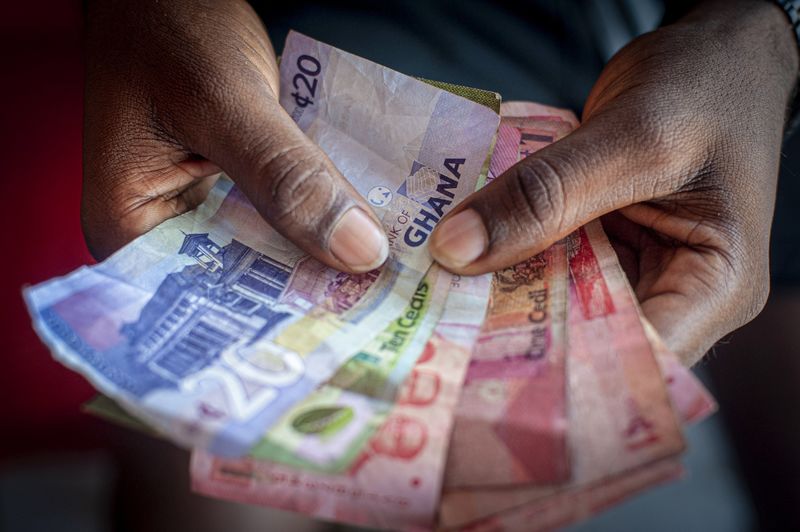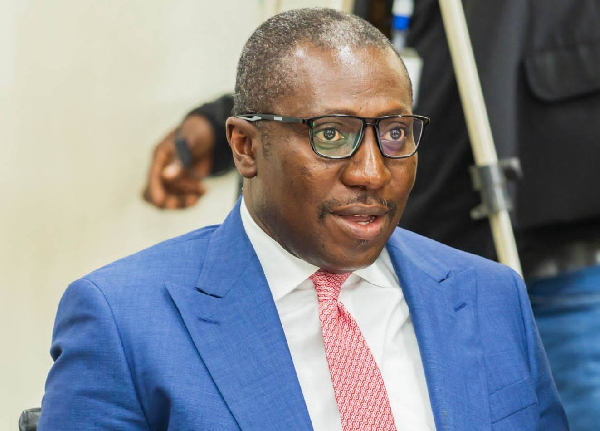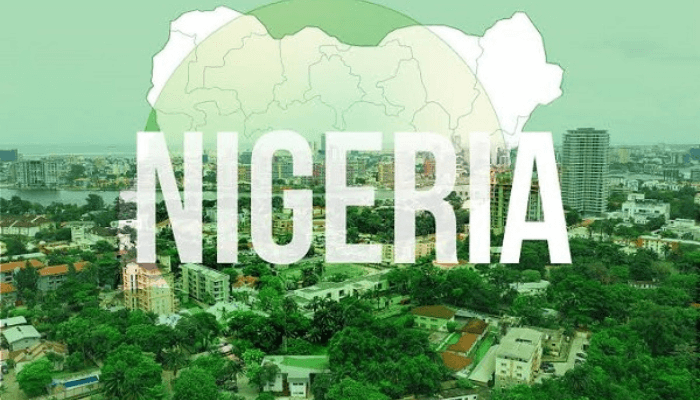In this interview with KINGSLEY JEREMIAH, the Group Managing Director of Solewant Group, a Port Harcourt-based advanced coating solutions provider for the oil and gas industry, Mr Solomon Ewanehi, speaks on significant developments, challenges and opportunities in the oil and gas sector.
Your firm has continued to focus on technological innovations over the years. What are the reasons behind your focus on technology?
At Solewant Group, we have always viewed technology as a powerful enabler—one that drives both operational efficiency and strategic growth. Our commitment to technological innovation stems from a deeply rooted belief that the future of the oil and gas industry, particularly in Africa, hinges on our ability to adapt, evolve, and integrate advanced solutions. This focus is not merely about staying ahead of the curve; it’s about harnessing technology to solve real-world challenges that directly affect our industry, our clients, and the communities we serve.
First and foremost, technology enables us to enhance the safety and reliability of our operations. The oil and gas industry has always been high-risk, with significant challenges related to safety, equipment integrity, and environmental impact. Over the years, we have adopted cutting-edge technologies that not only safeguard the well-being of our employees and contractors but also mitigate environmental risks. At various levels of operations, these technologies have allowed us to anticipate and address issues before they escalate, significantly reducing downtime and preventing accidents.
Secondly, our focus on technology stems from the need to optimise efficiency and reduce costs. The margins in the oil and gas sector are often thin, and the pressure to run cost-effective operations has never been greater. By leveraging automation, data analytics, and cloud-based systems, we can streamline operations, enhance supply chain management, and maximize asset utilization. Technologies like robotics allow us to conduct operations more quickly, more accurately, and at a fraction of the cost compared to traditional methods. These efficiencies translate into both cost savings for us and enhanced value for our clients.
Additionally, as a company with over two decades of experience, we understand that the energy landscape is rapidly changing, particularly as the world shifts towards more sustainable and renewable energy sources. Technology plays a critical role in this transition, whether it’s through the development of hybrid energy systems, energy-efficient solutions, or the integration of renewables with traditional oil and gas operations. By embracing new technologies, we position Solewant Group as a forward-thinking leader in the sector—one that is prepared for the future, not only in terms of operations but also in contributing to global sustainability efforts.
We also recognize that Africa is uniquely positioned to leapfrog many of the technological challenges that have traditionally plagued developed nations. By embracing digitalization and the latest innovations, Africa can move toward more efficient, sustainable, and inclusive energy solutions. Our investment in technology reflects our commitment to being at the forefront of this change, both for our operations and as a contributor to the African energy transition.
Moreover, technology helps us drive innovation in our services and product offerings. As a leading pipe and metals fabrication and coating solution provider, we have invested heavily in technologies that enhance the precision, durability, and scalability of our products. Advanced manufacturing techniques enable us to deliver more customized solutions faster and with greater accuracy. Our focus on technological innovation ensures that we are not just meeting current demands but actively anticipating future needs.
Furthermore, technology empowers us to provide better customer service and engagement. Through digital platforms, we can collaborate more efficiently with clients, track project progress in real-time, and offer data-driven insights that help our clients make more informed decisions. This level of transparency and responsiveness has helped us build strong, long-lasting relationships with our clients, who trust us to deliver not only the highest quality products but also superior customer experiences.
In essence, our focus on technology is not just about embracing new tools or systems for the sake of innovation—it’s about building a future-proof business that can thrive in an increasingly competitive and fast-evolving global energy market. It is about enhancing our ability to deliver better outcomes for our clients, stakeholders, and communities, and positioning Solewant Group as a key player in the energy industry’s digital and technological transformation.
What is your assessment of 2024 as far as the oil and gas industry is concerned?
The year 2024 has been a pivotal year for the oil and gas industry, with significant developments, challenges, and opportunities shaping the global landscape. As we reflect on the trends and dynamics that have unfolded this year, it is clear that we are at a critical juncture—one that demands agility, innovation, and a renewed commitment to sustainability.
On the global front, the market has continued to experience volatility, largely driven by geopolitical tensions, fluctuating demand, and shifting energy policies. The ongoing efforts by OPEC and its allies to manage production levels and stabilize prices have had a profound impact on supply and demand dynamics, but the market remains susceptible to external shocks, including potential disruptions in key oil-producing regions. This uncertainty, though challenging, has also underscored the importance of resilience in our operations and long-term strategic planning.
In Africa, the energy landscape has remained diverse and complex. The continent continues to possess immense untapped reserves of oil and gas, and as a result, there is a growing focus on developing infrastructure and improving technological capabilities. Countries like Nigeria, Angola, and Algeria are still key players in the global oil market, but the industry here faces unique challenges, including ageing infrastructure, regulatory hurdles, and the need for greater investment in exploration and production. 2024 has seen continued efforts to overcome these barriers, with increasing investments in digital technologies, more sustainable practices, and the pursuit of energy diversification.
From a regional perspective, the year has also witnessed increasing calls for more localized energy solutions. The need for African countries to reduce their reliance on imported energy and create self-sufficient energy systems has been more pronounced than ever. With that in mind, 2024 brought about significant investments in both traditional oil and gas infrastructure as well as in renewable energy sources, signalling a transition towards more sustainable energy systems. The growing interest in hybrid energy systems, which combine fossil fuels and renewables, has become a key area of focus, particularly in light of the global push for net-zero emissions.
The global oil and gas sector is also grappling with regulatory changes and growing pressure to meet climate goals. Increasingly stringent environmental regulations and policies aimed at reducing carbon emissions have created new challenges for traditional energy companies. However, they have also created an opportunity for innovation, pushing businesses like ours to find more sustainable and energy-efficient solutions. In 2024, we witnessed a notable rise in the adoption of carbon capture and storage (CCS) technologies, as well as continued research and development into cleaner energy alternatives. This is particularly relevant for us as an African company operating in a continent that is striving to balance energy needs with environmental sustainability.
The industry’s focus on digital transformation has been another defining feature of 2024. The implementation of AI, big data analytics, IoT, and blockchain has accelerated in the oil and gas sector, especially concerning operational efficiency, risk management, value chain optimization and safety. The use of these technologies has proven critical in improving predictive maintenance, reducing operational downtime, and optimizing asset management—key factors that have allowed companies to remain competitive in an unpredictable environment. In Africa, the challenge remains to ensure that the benefits of digitalization reach all corners of the continent, from large-scale projects to smaller, regional operators.
2024 saw a greater focus on talent development and workforce sustainability. The oil and gas industry continues to evolve, and the demand for skilled professionals in areas like data science, robotics, and sustainable energy solutions has grown exponentially. At Solewant Group, we have been at the forefront of this transformation by investing in human capital and driving initiatives aimed at developing the next generation of energy professionals. This commitment to upskilling and empowering our workforce has been critical in ensuring that we remain agile and prepared to navigate the industry’s evolving demands.
Looking beyond 2024, the past has laid a strong foundation for what promises to be a transformative period in the oil and gas industry. The continued global emphasis on sustainability, the shift towards cleaner energy solutions, and the adoption of innovative technologies will define the trajectory of the sector in the coming years. While the challenges are significant, they present an unparalleled opportunity for Africa and for Solewant Group to lead in the transition to a more sustainable, efficient, and technologically advanced energy future.
In summary, 2024 was a year of resilience, adaptation, and opportunity. The oil and gas industry is undergoing profound changes, and we at Solewant Group remain committed to navigating these shifts with a forward-thinking approach. We are optimistic about the future, knowing that by embracing innovation, prioritizing sustainability, and investing in talent, we can continue to play a key role in shaping the future of the energy sector in Africa and beyond.
How has Solewant Group’s yearly Energy Summit which you have successfully hosted for eight times impacted Africa’s oil and gas industry?
Hosting the Solewant Energy Summit for the past eight years has been an immensely rewarding and transformative journey, not just for us at Solewant Group, but for the broader African oil and gas industry. The Summit has become a key platform for dialogue, innovation, and collaboration, and its impact on Africa’s energy sector is profound. Each year, as we bring together thought leaders, industry stakeholders, government officials, and academics from across the continent and the world, the Summit serves as a crucible for generating actionable ideas and solutions to the challenges that our sector faces.
One of the Summit’s greatest impacts has been its role in fostering collaboration between African companies and global industry players. As Africa’s energy needs continue to grow, we must work together across borders, pooling our expertise, resources, and visions for the future. The Summit provides the perfect environment for such collaboration, enabling partnerships that extend beyond discussions to tangible business ventures and joint ventures in exploration, development, and sustainability initiatives.
The Summit has also played a pivotal role in shaping policy discussions. Through the exchange of ideas between government representatives, private sector leaders, and industry experts, we have contributed to the creation of more favourable regulatory environments that support investment, innovation, and the development of local content. We’ve seen how our discussions have directly influenced national energy policies, making them more inclusive and aligned with the unique opportunities and challenges that Africa faces in the oil and gas sector.
Another significant impact has been in technology and innovation. Africa’s oil and gas industry is at a crossroads, where adopting cutting-edge technologies will be crucial to meeting energy demands sustainably and efficiently. The Summit provides a platform for showcasing new technologies, from advanced drilling techniques to renewable energy integration, all while encouraging the adoption of best practices. The discussions and presentations we host often lead to collaborations that introduce the latest technologies to the African market, helping us leapfrog traditional energy challenges.
Furthermore, our Energy Summit has created a legacy of knowledge-sharing. Over the years, we’ve seen how the insights shared by experts, paired with practical workshops, exhibitions and panel discussions, have empowered local professionals and companies to enhance their capabilities. The educational aspect of the Summit has contributed to the capacity-building of the industry, ensuring that the workforce is equipped with the skills and knowledge needed to thrive in an increasingly complex and competitive environment.
The Summit’s impact extends to local communities as well. By bringing attention to the socio-economic benefits of oil and gas development, such as job creation, skills development, and infrastructure improvement, the event has underscored the importance of ensuring that the benefits of oil and gas extraction are shared with the communities in which these activities take place. Over the years, we’ve seen how dialogue initiated at the Summit has led to the implementation of more inclusive and sustainable development programs.
As we reflect on the past eight years, the Solewant Energy Summit stands as a testament to the role that industry leaders like Solewant Group can play in shaping Africa’s energy future. It’s not just a gathering—it’s an incubator for ideas, an accelerator for change, and a catalyst for the continued growth of Africa’s oil and gas industry. We remain committed to ensuring that the Summit continues to serve as a leading platform for shaping Africa’s energy landscape for years to come.











